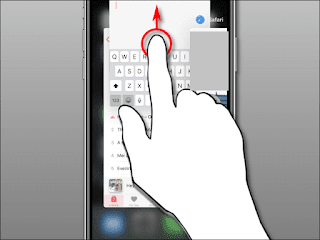Why you should stop closing apps on your iPhone
It is very important to stop closing apps on iPhone. In general, when we do this, the goal is to improve the overall performance of the device and save the battery, the problem is that we do the opposite. We even make our devices perform worse.
You should stop closing all apps on your iPhone
Many people understand how applications run and work on both Mac and Windows operating systems. In these operating systems, if an application is running in the background, it may consume CPU cycles or occupy RAM. Logically, one would think that closing those programs that we do not use, the computer in general will work more fluidly. In this way we succeed in controlling the resources of the computer.
But that's a reality on Mac and Windows, and doesn't mean it's on mobile devices, either on Android or iOS. Things work differently, when we stop using an app it goes into suspended state and in iOS it automatically frees up CPU and RAM cycles that were meant to keep the app running.
In short, the iPhone takes care of managing all the device's resources automatically and does this very well; You don't have to worry that the background app is consuming resources. Even, officially, Apple guarantees that the only reason we need to close an app is only if it's not working.
Opening apps has effects on performance and battery
In fact, when we force close apps on iPhone, we slow down our app experience. But this is not only in this, we also consume more battery than it should.
- This is a simple explanation, when we completely close an application and reopen it, the process of booting resources and reloading them again starts from the beginning. This will require additional CPU power, draining the battery and hardware in general a lot more. Restarting a closed app also slows down switching between suspended apps.
In conclusion, by closing apps completely or forcing them to close, instead of increasing performance and saving battery, we achieve the opposite effect. However, there is an exception to the rule, as in everything in life.
Sometimes the background app can search for new information. If this app is programmed incorrectly, it may end up consuming more battery than usual. So, it is misusing resources in the background and this is something we can check from the Battery section of the iPhone settings. In this case, we should not force the shutdown either, we simply disable the background app refresh, also from the settings.
Sometimes apps need to close
Despite everything discussed above, there are a few reasons why we have to force close apps. If an app stops responding or isn't working as expected, it's a good idea to force close the app.
Don't close apps on iPhone
On iPhone X or later, we simply have to slide our finger up from the bottom of the screen and then slide our finger up on the app we want to close.
On the iPhone that has a home button, we will press the respective button twice so that we can force close the apps.


